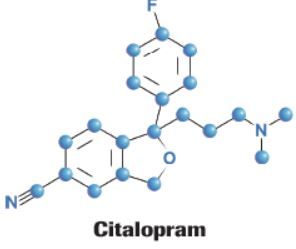making_art
Member
Unlocking the emotions of cancer
By Heather Stringer
APA Monitor
2014, Vol 45, No. 10
A new mandate requires cancer centers to screen oncology patients for distress.
Susan Syring, a nurse at Siteman Cancer Center in St. Louis, recently cared for a woman in her late 60s who needed radiation treatment for liver cancer. The patient showed no outward signs of anxiety. But when Syring mentioned they might ask her to take a test that rated people's distress from zero (no distress) to 10 (extreme distress), the patient's daughter interjected that her mother must be a 20 out of 10.
"This surprised me because [the patient] was not restless or doing anything I would have normally picked up on," Syring says.
She soon learned why her patient was distraught: Not only was the woman raising two teenage grandsons because her son had recently died, but her husband was terminally ill with blood cancer. The patient was relieved when Syring explained that the hospital offered free counseling services.
Depression and anxiety are among the most common mood disorders associated with cancer. According to a 2012 study of more than 10,000 patients diagnosed with the disease, 19 percent showed clinical levels of anxiety, and another 23 percent reported subclinical symptoms. About 13 percent of the patients showed levels of depression in the clinical range, and 17 percent reported subclinical depression symptoms (Journal of Affective Disorders, 2012).
Syring's patient was fortunate, because Siteman Cancer Center has started screening oncology patients for distress using a tool called the Distress Thermometer. But many cancer centers do not have such programs and, consequently, mood disorders often go unrecognized.
Some institutions have started implementing screenings to identify patients most at risk of mental health disorders during treatment. Other sites, however, have been overwhelmed by the logistics of offering psychosocial support to patients who may be dealing with fear of mortality, financial insecurity and debilitating drug side effects, including fatigue. According to a survey conducted by the American Psychosocial Oncology Society, about 90 percent of the 146 institutions surveyed offer clinical psychosocial services, but only about half of those facilities provide routine distress screening (Psycho-Oncology, 2013).
For patients, there is actually disincentive to initiate these types of conversations — they don't want to be a "problem patient" or distract the physician from treating the cancer, says Northwestern University psychologist Lynne Wagner, PhD. "The patient assumes that the oncology team would ask if they wanted to know, but the oncology team assumes patients will share if they are struggling," Wagner explains. "It's really a perfect storm that allows distress to go undetected and untreated."
This conundrum was just reaffirmed by research on more than 21,000 patients that found nearly 75 percent of depressed cancer patients were not receiving treatment for their mental health condition (The Lancet Psychiatry, 2014).
Next year, that trend will change in the United States thanks to a new mandate that requires cancer centers to implement a distress screening program to maintain accreditation from the American College of Surgeons' Commission on Cancer. Ultimately, the new standard has the potential to help medical teams in the country's some 1,500 accredited facilities, where nearly 70 percent of all newly diagnosed cancer patients are treated.
"This is the first time that psychosocial care has been a required component of cancer care in this country," says Wagner, a member of the working group that reviewed the accreditation standards for cancer centers. "We can expect to see an increase in referrals for mental health services, and the standard will be a very powerful tool for leveraging resources for psychosocial providers."
Psychology and physiology
The urgency to mandate distress screenings in cancer centers ratcheted up when an increasing number of studies began revealing that mood disorders had the potential to affect disease outcomes.
One study, for example, showed that breast cancer patients who participated in weekly group interventions with a psychologist for one year reduced their risk of breast cancer recurrence by 45 percent (Cancer, 2008). In the groups, patients learned such skills as relaxation techniques, positive ways to cope with stress and strategies to maximize social support. In a follow-up study of the same patients whose cancer later recurred, researchers found that those who participated in the group therapy intervention had a 59 percent reduced risk of cancer death (Clinical Cancer Research, 2010).
"The psychosocial intervention had positive, long-lasting effects, reducing negative mood symptoms while at the same time improving the patient's immunity response," says lead researcher Barbara Andersen, PhD, of the Ohio State University. "It is important to realize that as the emotions change, the biology is likely changing as well. Conversely, biologic changes may impact emotions."
A similar study explored whether depression could influence cancer survival in women with metastatic breast cancer. Lead researcher Janine Giese-Davis, PhD, of the University of Calgary in Canada, found that women who became less depressed over time lived an average of 53 months, compared with 37 months for women who became more depressed over time (Journal of Clinical Oncology, 2011).
"It is normal to get depressed when [you are] diagnosed with cancer, but it is important not to stay there because chronic depression has the strength to impact your physiological symptoms," Giese-Davis says. "Our goal is to encourage people to get help if they are depressed."
The new distress screening mandate will help with this goal. It requires facilities to offer distress screening, referral or provision of care and follow-up for psychosocial distress, but providers can select their own screening tools, the timing of the screening and the criteria for referral for psychosocial services. Such general guidelines aim to give cancer care providers the flexibility to create programs that fit their institutions best.
At Siteman Cancer Center, for example, when patients score above a five on the Distress Thermometer, nurses or medical assistants alert the medical team to discuss psychosocial support options with the patient. After rating their distress level, patients also indicate any areas that have been a problem in the last week, such as dealing with children, physical pain or sadness.
At Walter Reed Army Medical Center in Bethesda, Maryland, clinicians screen all new cancer patients for their level of distress using the same "thermometer" and notify psychologist Leslie Cooper, PhD, when patients score four or higher. Cooper, who works in Psycho-Oncology Service at Walter Reed, then follows up with the patients to discuss the details of their answers. The screening recently identified a patient with brain cancer who was struggling with feelings of panic that reminded him of his war experience. Cooper helped him understand that his diagnosis did not necessarily mean he had a short time to live because treatments were available.
"The screening instrument has been very helpful because it allows us to help patients talk about their diagnosis and treatment," says Cooper. "It provides a vocabulary for thoughts, feelings and concerns that the patients and medical team can use to communicate as they discuss the treatment protocol and what to expect in terms of quality of life."
New opportunities for psychologists
While some hospitals have psychologists on staff to treat oncology patients, many cancer centers have social workers to meet patients' psychosocial needs, says Teresa Deshields, PhD, a psychologist at Siteman Cancer Center. She hopes the new standard will increase the demand for mental health services and spur cancer treatment centers to hire more psychologists to treat patients who are struggling with the emotional aspects of the disease.
"There's an important place for psychologists because social workers are often swamped dealing with practical things and have little time for counseling or therapy," she says. "There are a lot of psychological issues that need more than a practical fix."
For hospitals that do not have the resources to hire more psychologists, patients may be referred to mental health practitioners or community organizations that can offer help outside the hospital walls.
"This is an opportunity for mental health practitioners to be proactive and start contacting accredited hospitals about the valuable services they can provide," says Vicki Kennedy, an oncology social worker at the Cancer Support Community, an international nonprofit organization based in Washington, D.C.
She is one of many health-care providers who say they are excited about the screening tool's ability to advance cancer patient care. "People are not always going to admit that they are struggling, and the screening is an opportunity to improve the cancer experience."




